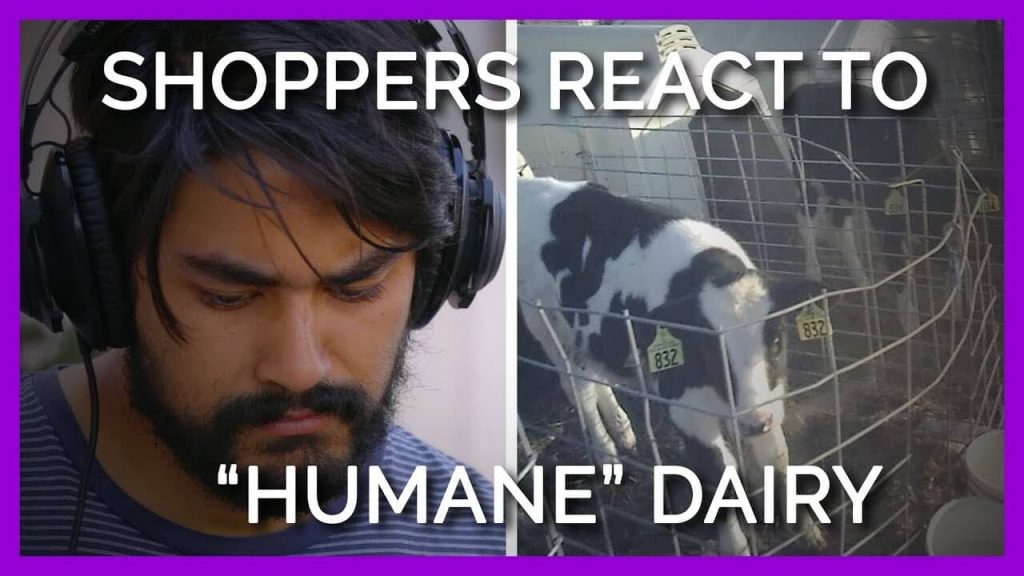If you’ve ever wondered where you can get raw milk, stop right there. Whether it’s raw or pasteurized, animal-based milk is a product of cruelty, exploitation, and speciesism. Here are answers to some common questions about raw milk.
What is raw milk?
Raw milk is stolen from animals, typically cows, sheep, or goats. It hasn’t been pasteurized to kill harmful bacteria such as Campylobacter, Cryptosporidium, E. coli, Listeria, Brucella, and Salmonella.
Dairy farms are hotbeds for these dangerous germs, as many of these facilities—even ones labeled “organic”—confine cows to filthy, crowded lots, where they’re forced to live amid their own waste.
That’s not mud. #Dairy farms are crowded and filthy, and cows are often forced to stand in their own waste, just moments before being milked. pic.twitter.com/oOpAUwuD08
— PETA (@peta) May 10, 2020
Is raw milk safe to drink?
The Centers for Disease Control and Prevention (CDC) has said that raw milk is “one of the riskiest foods.” According to the CDC, food-borne outbreaks linked to raw milk continue to threaten the public’s health.
But the real question is whether any milk from animals is safe for humans to drink. The dairy industry repeatedly artificially impregnates cows to force them to produce milk. They spend much of their lives standing on concrete in cramped milking pens, where they’re hooked up to milking machines, sometimes multiple times a day. Many dairy farms pump cows full of antibiotics and growth hormones, which end up in the milk products sold in supermarkets.
Additionally, up to 50% of cows exploited for milk suffer from mastitis—a painful udder infection resulting from the grueling, abusive milking routines that dairy farms subject them to. Their infected udders produce pus, contaminating their milk. Because mastitis is so common, the dairy industry has pushed to keep allowable pus cells in cow’s milk as high as possible—the U.S. has one of the highest rates in the world.
That’s not even mentioning the general health risks associated with consuming cow’s milk, which has been linked to an increased risk of heart disease, cancer, diabetes, and many other serious ailments.
Is raw milk better for animal welfare?
Mothers of all species produce milk for their babies. Only humans produce milk for other humans. Using cows, goats, sheep, or any other animal for their milk is speciesist and cruel, no matter what the supposed animal welfare standards are. Mother cows are fiercely protective of their young and often spend days crying out for their babies when dairy farms cruelly tear them apart.
The dairy industry regularly misleads consumers with humane-washing buzzwords—like “organic” or “grass-fed”—to dupe them into thinking that there’s a humane way to exploit sentient beings. Facilities that make these claims still forcibly impregnate cows, take their babies away from them soon after birth, and use them like milk-producing machines. The only milks that are “better for animal welfare” are ones that don’t come from animals.
Are there health benefits of drinking raw milk?
No. There’s no nutritional need for humans to consume any animal-based products. Plenty of vegan milks provide essential nutrients like calcium, B12, and protein, without all the cholesterol found in cow’s milk. In addition, vegan milks are lower in fat and hormone-free.
Where can I get raw milk?
It’s simple: Don’t get it. Consuming cow’s milk fuels the dairy industry’s tremendous cruelty to gentle, sensitive cows who don’t want to be exploited. Vegan milks are healthier, better for the environment, and, most importantly, don’t cause countless animals to suffer. Order a vegan starter kit to get started today:
The post ‘Is Raw Milk Safe to Drink?’ and Other Questions Answered appeared first on PETA.

